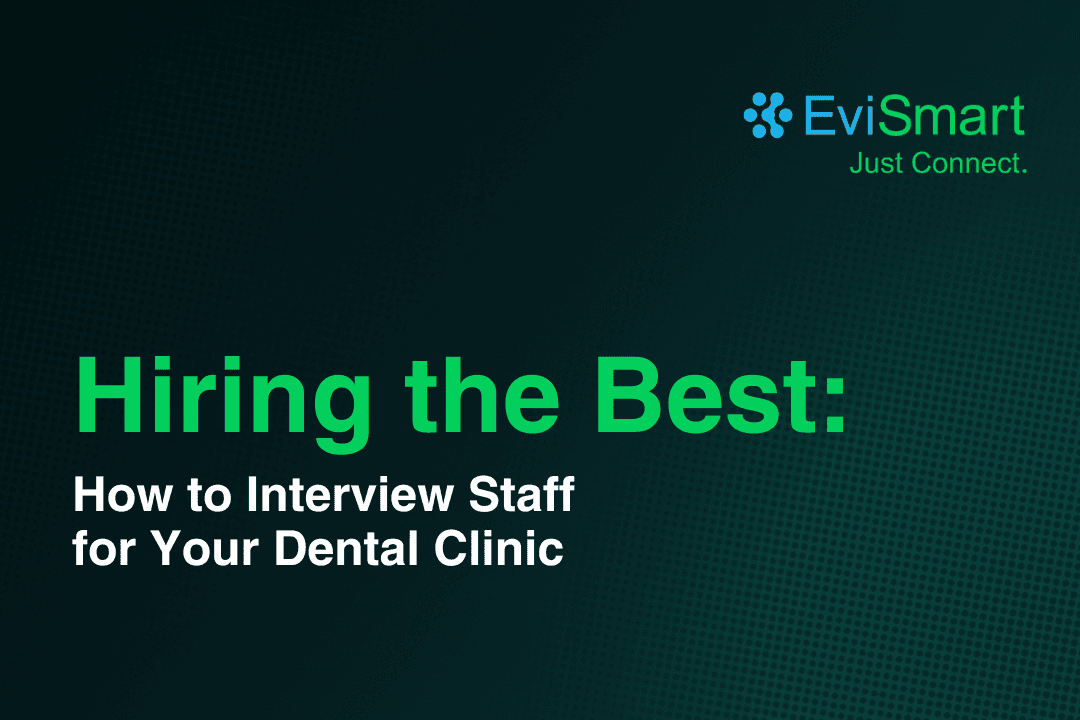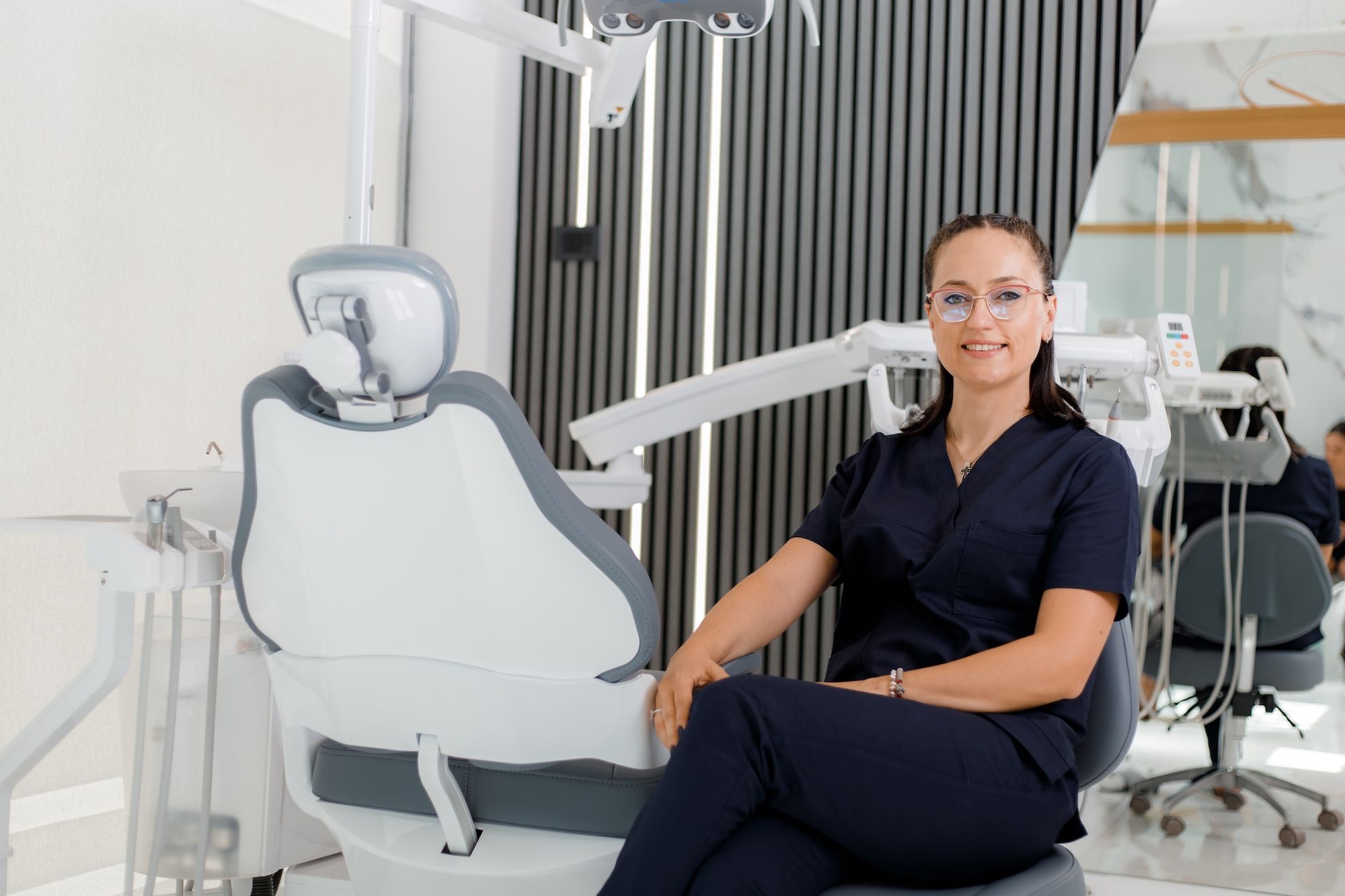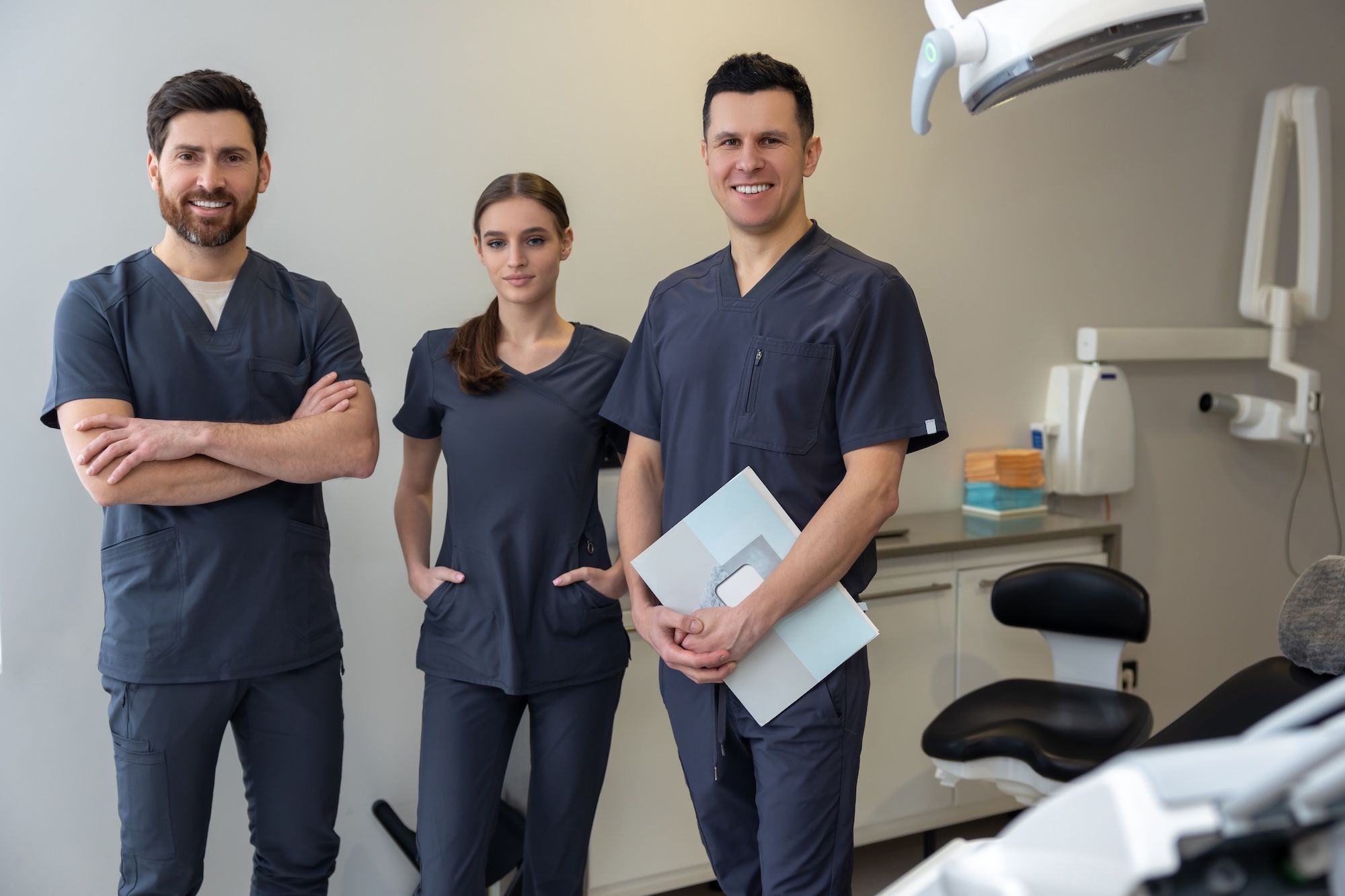Hiring the Best: How to Interview Staff for Your Dental Clinic

You’ve posted the job ad and sorted through resumes. Now comes the tricky part: interviewing.
A strong interview process can be the difference between hiring a high-performing team member or dealing with turnover down the road.
This guide walks you through how to conduct effective interviews that lead to confident hiring decisions.
🔎 Figuring out what a “good hire” looks like for your clinic
It’s common for dentists to Google “top 10 interview questions” before meeting with a potential hire — but it’s also common for candidates to research “top 10 interview answers.” This was the observation of Dental Practice Management Strategist Ginny Hegarty in the American Dental Association (ADA)’s podcast Dental Sound Bites.
Hegarty added, “This theater goes on where everybody’s doing their performance really well, but they’re not learning anything about each other."
As such, she recommended consulting with the rest of the team to create de facto criteria for a good hire. “Often, doctors think if it's going to get done, it's got to be me. But your team wants to be part of the process. And it will be more successful if they are,” Hegarty said. “People support what they help create.”
2 ways to get your team’s input:
- Hagerty’s ‘Groundhog Day’ exercise
Hagerty advises clinics to identify what worked and what didn’t among previous hires. You don't have to name names or cite specific incidents, but it can be useful to pinpoint the team’s non-negotiables moving forward. Did someone bring many strengths to a position but was not providing detailed chart notes, which caused bottlenecks? Then good written and oral communication may be one of your non-negotiables.
- Reverse brainstorming
Simply asking staff what they want to see in a new hire may not always yield the most substantial results, so one useful technique is reverse brainstorming. Instead of thinking of the best candidate, they think of the worst: maybe someone who’s always late, keeps crucial patient information to themselves, or uses too much jargon while speaking to patients.
Once you have this list, you reverse these ideas back into positive ones: someone who’s punctual, a team player who keeps charts updated, and a great communicator who laymanizes information for patients. This becomes what you look for in candidates.
💬 Crafting your own interview questions (to actually get to know a candidate)

Now that you have your team’s input, you can ask questions that help determine if a candidate possesses the traits you’re looking for. Below is a useful structure to follow so you hit all bases during the interview.
1️⃣ Introductions
What do you ask after “Tell me about yourself”? Regardless of role, you can ask the following.
- Previous experience. Their resume tells you about their professional experience; the interview is where you can assess if they have the skillset for the role or at least a willingness to be trained.
- Their interests outside of work. While we don’t want to meddle too much in their personal lives, their hobbies can reveal certain characteristics. Playing sports, for instance, may signify the ability to be a team player.
2️⃣ Technical skills
Especially for clinical roles, it’s best to ask specific questions to gauge a candidate’s knowledge. Below are sample questions for a dental assistant role and a dental hygienist role, as well as what to look for in their responses.
Dental assistant sample questions:
- Can you walk me through the process of assisting during a root canal procedure?
- A good candidate should demonstrate familiarity with instruments like endodontic files and suction devices.
- They should also explain their role in ensuring patient comfort while assisting the dentist efficiently.
- How do you take accurate dental impressions?
- The candidate should describe what an ideal scan or impression looks like, and discuss techniques to minimize errors, ensure proper tray selection, and handle patient comfort.
- What do you do if a piece of equipment malfunctions during a procedure?
- A strong candidate will mention basic troubleshooting steps, notifying the dentist, and ensuring patient care is not disrupted.
- You may also reframe the question to ask if they have experienced this before and what they did to solve it in real time.
- They should demonstrate problem-solving skills and knowledge of equipment maintenance.
Dental hygienist sample questions:
- Can you describe your experience with scaling and root planing?
- Look for a detailed explanation of techniques and tools used.
- They should highlight their ability to assess and treat periodontal disease.
- What techniques do you use for detecting early signs of periodontal disease?
- A well-qualified hygienist will discuss periodontal probing, X-ray evaluation, and visual inspection.
- Ideally, they should emphasize the importance of early intervention and patient education.
- How do you educate patients about oral hygiene and preventative care?
- The candidate should mention using clear, patient-friendly language and tailored recommendations.
- Look for experience in explaining flossing techniques, brushing habits, and dietary impact on oral health.

3️⃣ Behavioral skills
Beyond their hard skills, you can ask these questions for any role to assess problem-solving and critical thinking.
- Have you ever made a mistake on the job? How did you correct it?
- In their response, the candidate should take accountability rather than shift blame.
- They should explain how they resolved the issue and what steps they took to prevent future mistakes.
- Tell me about a time you had to juggle multiple tasks at once. How did you prioritize?
- The candidate should demonstrate time management and organizational skills, but also a willingness to ask for help.
- They should mention tools or strategies they use to stay efficient, such as to-do lists, scheduling software, or delegation.
- Tell me about a time you received constructive criticism. How did you respond?
- The candidate should show openness to feedback and willingness to improve.
- Strong responses include specific examples of how they applied the feedback to grow professionally.
4️⃣ Teamwork and culture fit
The following questions help determine how a candidate can work with your current team and culture.
- What kind of work environment are you looking for?
- This helps assess whether their values align with your clinic’s culture.
- How do you handle disagreements with coworkers or supervisors?
- Look for conflict resolution skills, professionalism, and the ability to remain calm under pressure.
- The candidate should emphasize respectful communication and a problem-solving mindset.
- What do you do when you need help on a task?
- A good answer includes asking for help proactively and ensuring patient care remains uninterrupted.
- Look for signs that the candidate values learning and collaboration over struggling alone.
5️⃣ Ask if they have any questions
During the interview, you not only get to know the candidate; they get to know you and your clinic as well. Open the floor to questions about the role and its contributions to daily operations.
🤝 Knowing if they’re the right fit

Score their responses during the interview
While we know what to look for in the candidate’s responses, how do we know which candidates are the best fit?
Hagerty, from the ADA podcast, has a scoring system for interviews:
Imagine a phone interview has 6 questions, and each question is worth 5 points. The interviewer can give them a score between 1 and 5, then total it after the conversation. Instead of taking down everything they say, note what you think of their answers.
Now, of a possible 30 points, Hagerty suggested setting a minimum score to filter candidates who would move on to the next phase. This can be 20-25 points.
Don’t be afraid to restart the search
The goal of recruitment, according to Hagerty, is not to hire the best among the applicants but to evaluate each of them against the role. That means it’s possible for none of the candidates to fit the bill.
Being short-staffed is admittedly challenging, but taking your time with recruitment and ensuring you’re getting the best possible fit is worth it in the long run. We’re trying to avoid a high turnover rate, which can lower overall employee morale.
📋 Final words: Hire smart for long-term growth
By taking the time to define your hiring needs, ask intentional questions, and quantitatively assess candidates, you minimize costly hiring mistakes. Investing in the right people now will save you time, money, and stress in the future; and a strong team fosters a more efficient clinic, happier patients, and a fast-growing practice.
